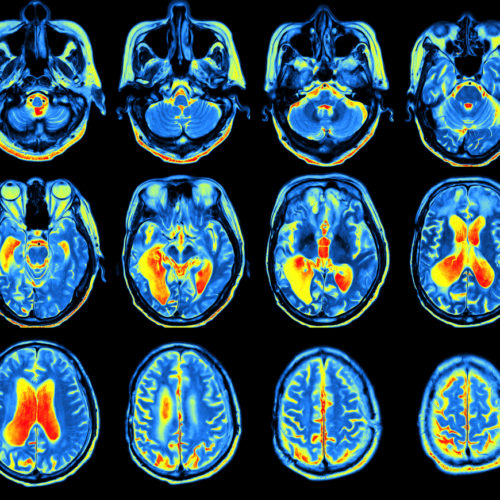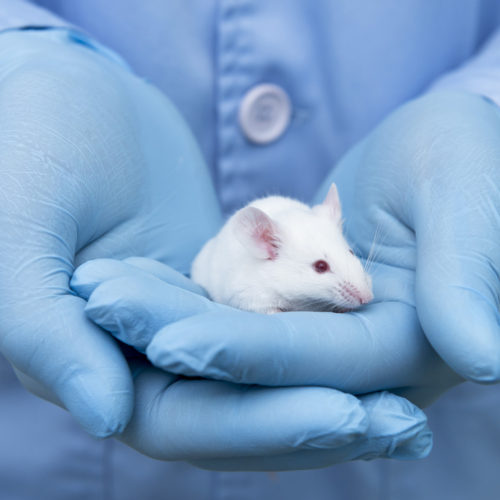This post was originally published on this site Alzinova‘s ALZ-101 vaccine — designed to target toxic forms of the amyloid beta protein that drive neurodegeneration in Alzheimer’s disease — was well-tolerated in non-human primates and displayed efficacy in a fish model of the disease. A clinical study in patients with early Alzheimer’s disease now is expected to…
Category: Alzheimer’s
Music and Laughter Are Strong Medicine Against Dementia
This post was originally published on this site When my 67-year-old mother was diagnosed with stage 4 uterine cancer I was devastated. My mother already was disabled from depression and fibromyalgia, so being diagnosed a few months later with Alzheimer’s disease along with terminal cancer seemed like a cruel joke. Soon after I learned of…
Trial Begins Testing Blood-derived GRF6019 Therapy for Severe Alzheimer’s Disease
This post was originally published on this site The first patient has been dosed in Alkahest‘s Phase 2 clinical trial testing its investigational therapy, GRF6019, in individuals with severe Alzheimer’s disease. The study (NCT03765762) was designed to assess the safety and tolerability of the experimental treatment, as well as its impact on patients’ mental state and…
Biogen and Eisai Halt Phase 3 Trials Testing Aducanumab for Early Alzheimer’s
This post was originally published on this site Two Phase 3 clinical trials testing the investigational therapy aducanumab in patients with early Alzheimer’s disease have been discontinued. Biogen and Eisai came to this decision after an analysis from an independent data monitoring committee indicated that the global ENGAGE (NCT02477800) and EMERGE (NCT02484547) studies of aducanumab…
Combination of 2 Dietary Compounds May Have Benefits for Alzheimer’s Patients, Mouse Study Suggests
This post was originally published on this site Combining two dietary compounds found in green tea and carrots reversed cognitive deficits, lowered the accumulation of toxic amyloid beta, and reduced brain inflammation and oxidative damage in a mouse model of Alzheimer’s disease, a study reports. The study, “Combined treatment with the phenolics (−)-epigallocatechin-3-gallate and ferulic acid…
Dosing Starts in Phase 2 trial of Bryostatin-1 for Alzheimer’s
This post was originally published on this site Neurotrope Bioscience announced that dosing of patients has started in its Phase 2 clinical trial to further evaluate Bryostatin-1, the company’s investigational candidate for the treatment of moderate to severe Alzheimer’s disease. “Completion of enrollment in our confirmatory Phase 2 trial is an important step toward understanding…
Brains of People with Sleep Apnea Show Increased Tau Protein Aggregates
This post was originally published on this site People with sleep apnea show increased accumulation of tau protein aggregates — a hallmark of Alzheimer’s disease — in brain regions linked to memory and spatial navigation, a study finds. The results will be presented during the 71st Annual Meeting of the American Academy of Neurology, May…
Alzheimer’s Association and Women’s Alzheimer’s Movement Launch Campaign to Highlight Disease’s Impact on Women
This post was originally published on this site Because a disproportionate number of Alzheimer’s disease patients and caregivers are women, the Alzheimer’s Association and The Women’s Alzheimer’s Movement (WAM) are leading a global movement to do something about it. Announced March 8 on International Women’s Day, efforts include a South by Southwest (SXSW) Conference &…
Manipulating Brain Cells called Astrocytes May Ease Alzheimer’s Symptoms, Study Finds
This post was originally published on this site Manipulating astrocytes — a type of cell in the brain — to deliver a protein that favors the survival of neurons can rescue cognitive function, including memory, in a mouse model of Alzheimer’s disease, a study reports. The study, “Conditional BDNF delivery from astrocytes rescues memory deficits,…
Hip Fracture in Older People Without Dementia May Be Sign of Undiagnosed Alzheimer’s
This post was originally published on this site Abnormal levels of amyloid-beta and tau protein — two hallmarks of Alzheimer’s disease — were detected in the cerebrospinal fluid of older individuals without dementia who were hospitalized for hip fractures, a study shows. These findings suggest that alterations that can cause diminished balance in older people may…











